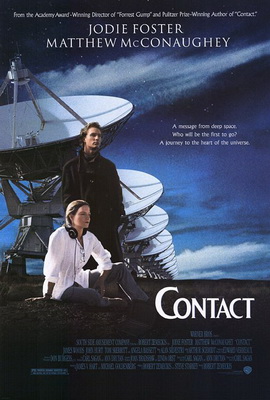Over the next three days I’m going to be sequentially posting a paper I’m giving at the Western Social Science Association. Instead of being in the form of a traditional academic paper, I’m going to post it in HTML with links to many of the subjects I’m discussing, and links to Amazon for the books that I reference.
Introduction
What is fake news
The modern conception of the term fake news can likely date back to the start of Jon Stewart as the host of Comedy Central’s The Daily Show. While The Daily Show has been on the air since July 21, 1996, with founding host Craig Kilborn and his guest Democratic operative David Axelrod. But the show did not really make its mark on American news culture until stand up comic Jon Stewart took over as host in January of 1999. Over his 17-year run, Stewart would continue to maintain that he was a comic, not a newsman.
2004 was the year that brought fake news to the attention of American news consumers. As can be seen in Table 1, there were almost as many mentions of “fake news” in the Washington Post in 2004 as there had been in total between 1999 and 2003. And many of these were of Jon Stewart and his news-based comedy and satire.
But then in 2014, something new started to happen. There was a sharp uptick in the use of the term “fake news,” with 51 mentions, followed by 60 mentions in 2015. The year 2016 brought an explosion in the use of “fake news” with 387 mention, of which 223 of them mentioned presidential candidate Donald Trump. That was just a beginning, however. The first three months of 2017 brought 846 mentions, of which 658 included mentions of Trump, and only 3 mentioned Stewart.
The uses of the term “fake news” since 2015 have been legion, including satire, hoaxes, partisan clickbait, foreign political manipulation, and general purpose media criticism.
This snapshot look at fake news does not give the full context of how we have seen made-up, satirical, and yes, fake news in the media industry. This paper does not attempt to provide a comprehensive look at the history of fake news. Instead, it is providing a series of snapshots of moments in fake news history.
| Year |
Mentions |
Stewart |
Trump |
| 1999 |
5 |
0 |
|
| 2000 |
2 |
0 |
|
| 2001 |
3 |
0 |
|
| 2002 |
|
|
|
| 2003 |
6 |
0 |
|
| 2004 |
17 |
11 |
|
| 2005 |
23 |
3 |
|
| 2006 |
21 |
7 |
|
| 2007 |
17 |
5 |
|
| 2008 |
9 |
2 |
|
| 2009 |
12 |
3 |
|
| 2010 |
11 |
8 |
|
| 2011 |
10 |
3 |
|
| 2012 |
4 |
3 |
|
| 2013 |
6 |
1 |
|
| 2014 |
51 |
3 |
1 |
| 2015 |
60 |
13 |
5 |
| 2016 |
387 |
3 |
223 |
| 2017 |
846 |
3 |
658 |
Table 1
Samuel Johnson – 1700s in Britain
Readers in some eras have accepted fictitious reports as journalism. Tom Koch, in his book “The News as Myth, Fact and Context in Journalism” (1990) talks about how in the 1730s and 40s, the British parliament passed a law making it illegal for journalists to report on the debates and actions of parliament. So Edward Cave, publisher of Gentlemen’s Magazine, started running columns that were supposedly accounts of the “Parliament of Lilliput,” but there were really thinly disguised accounts of the real British parliament, largely written by that great man of British letters, Samuel Johnson.
Johnson’s fictionalized (and entertaining) accounts of the actions of the British parliament during the 1730s and 1740s were acceptable to readers because they understood that British law banned direct reporting on the actions of parliament. So these were “fake news” that were designed to tell “true” stories through the use of what was clearly fiction. Koch writes:
“Indeed, most of the Parliament of Lilliput copy was, by modern journalistic standards, pure fabrication. It carried the sense of the events in Parliament but almost never the actual words or actions of its members.”
Mark Twain – Civil War Era in the United States

Plaque at site of Territorial Enterprise in Virginia City, Nevada.
Mark Twain travelled west to live in Nevada Territory from 1861 – 1864. He had deserted from the Confederate army and needed to get away from the actual United States for a while until things calmed down.
During that time, Twain spent considerable time working for the newspaper The Territorial Enterprise in Virginia City, Nevada.
While there, he engaged in writing hoaxes that were known as “quaints.” Often these were done with the purpose of making a point for the reader, getting at some kind of higher truth. Take, for example, Twain’s story A BLOODY MASSACRE NEAR CARSON. In it, he tells a true story of corruption in the San Francisco market. But he hides the charges in a satirical story about a fictional massacre. But the satire was subtle enough that few readers recognized it as such, and the story was widely reprinted as fact.
This is something that we see Twain engaging in on a regular basis. Sometimes writing satire that is so subtle that it is missed; other times he is deliberately tweaking friends or public figures.
Twain’s “interesting stories” for the Enterprise were sometimes told as stories that were clearly meant to be believed, while others were told as tall tales that had no expectation of acceptance. Twain’s stories throughout his book Roughing It (which chronicles his trip west), frequently take on a blur between fact and fiction. George Plimpton, in his introduction to the Oxford Mark Twain edition of Roughing It has this to say about the nature of “truth” in the book:
“As I read along… I noticed about Twain’s asides that the truth is almost invariably stretched to the breaking point in order to give the incident or character a comic twist, and yet the reader never moans, “Oh, come off it!” It is part of Twain’s genius that he keeps us on the delicate edge of credulity — a condition which humorists, especially those who perform on the stage, strive to imitate. Every time a humorist confides to his audience that what is about to be told is a “true story,” one can be fairly sure that it will be nothing of the sort. Even Twain falls back on this on occasion. “That anecdote is true,” he insists after telling a story in Roughing It about a grizzled miner, long in the fields, who pays one hundred and fifty dollars’ worth of gold dust in a pouch to kiss a two-year-old child” (Plimpton 1996, pg. XXXII).
Plimpton goes on to note that Twain often builds his stories, starting with a reasonably believable story, goes to an exaggerated story, and finishes up with something that is absurd.
And yet, there are stories that at the time were almost unbelievable but were nevertheless rooted in fact. For example, a joke that he tells about a doctor in Utah being a vagrant is not strict fact, but even today Utah has a healthier population than any other state.
Twain learned about traditional journalism from two members of Enterprise staff: Dan De Quille and Joe Goodman. But Twain became bored with straight reporting about the mining industry. Twain became interested in the fanciful “quaints” that De Quille had been writing. Twain developed his use of the exaggerated story and his use of the “wink” to let people know it’s all a joke – something that many people missed.
It is easy to sit in judgment of Twain for his “fake news” – his out-and-out hoaxes, but we need to keep a couple of points in mind here. First, newspapers were the only locally produced media of consequence in Virginia City. To be sure, magazines and books would find their way in, but newspaper was the television, radio and cinema of its day. So providing entertainment to the reader was a basic part of the paper. Second, truth was something that was in short supply in Nevada at the time. Roughing It is full of accounts of unscrupulous men conning their neighbors with “salted” mines, worthless stock, and vague rumors.
Tomorrow – Part 2: Modern Day Hoaxes





 Contact tells the story of astronomer Ellie Arroway (played by Jodi Foster) who is searching for life outside of earth using radio telescopes to listen for signals that would indicate extraterrestrial life. She eventually detects these signals and interprets them as an invitation for humans to make contact with the civilization that sent them.
Contact tells the story of astronomer Ellie Arroway (played by Jodi Foster) who is searching for life outside of earth using radio telescopes to listen for signals that would indicate extraterrestrial life. She eventually detects these signals and interprets them as an invitation for humans to make contact with the civilization that sent them. Prometheus tells the story of archaeologist Elizabeth Shaw (played by Noomi Rapace) who is looking for signs of extraterrestrial contact with early humans using cave drawings located around the world. She interprets these drawings as an invitation (with a map) for humans to make contact with the civilization that inspired the drawings.
Prometheus tells the story of archaeologist Elizabeth Shaw (played by Noomi Rapace) who is looking for signs of extraterrestrial contact with early humans using cave drawings located around the world. She interprets these drawings as an invitation (with a map) for humans to make contact with the civilization that inspired the drawings. Contact for reasons that are never fully explained but would seem to be because he wants to make contact with another civilization. He then goes on to finance her journey through a wormhole to meet this alien civilization. He dies before the end of the movie. On a somewhat related note, actor John Hurt plays the role of Cane, the first person to die in the original Alien movie (for which Prometheus is a prequel).
Contact for reasons that are never fully explained but would seem to be because he wants to make contact with another civilization. He then goes on to finance her journey through a wormhole to meet this alien civilization. He dies before the end of the movie. On a somewhat related note, actor John Hurt plays the role of Cane, the first person to die in the original Alien movie (for which Prometheus is a prequel). Trillionaire industrialist Peter Weyland (played by Guy Pearce) finances Elizabeth’s journey to the distant moon LV-223. His motive is that he wants to meet the aliens who appear to have created humans. He is close to death throughout most of the movie, and he dies of unnatural causes before the end of the movie.
Trillionaire industrialist Peter Weyland (played by Guy Pearce) finances Elizabeth’s journey to the distant moon LV-223. His motive is that he wants to meet the aliens who appear to have created humans. He is close to death throughout most of the movie, and he dies of unnatural causes before the end of the movie.
